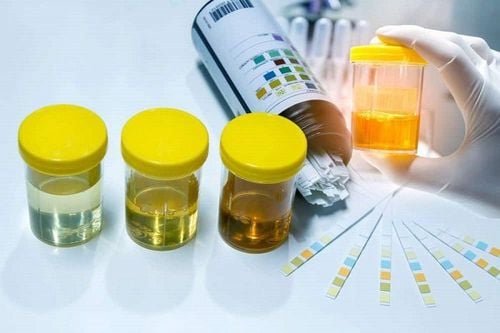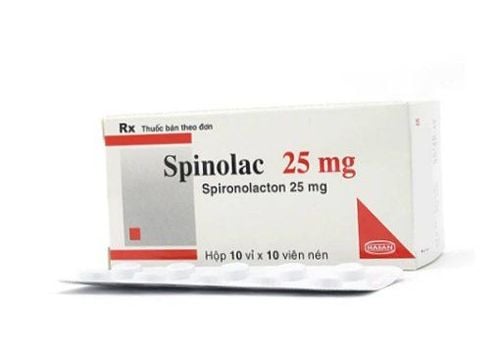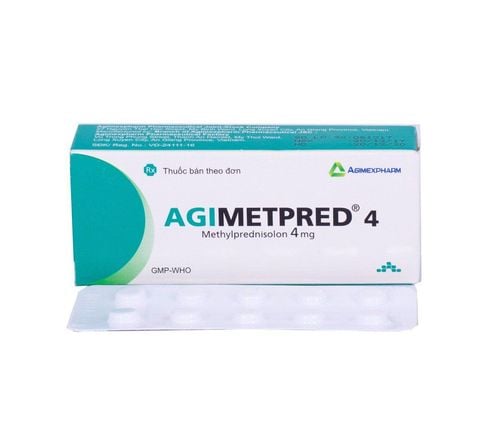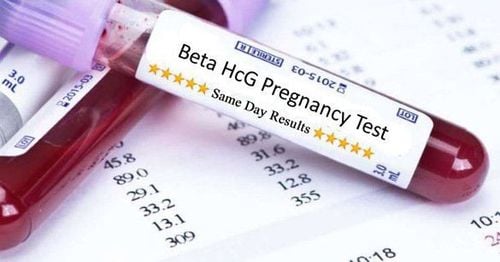This is an automatically translated article.
Addis residue test helps to find abnormal cells and molecules in the urine, has great value in the diagnosis and monitoring of kidney diseases, especially with nephrotic syndrome.
1. What is the Addis residue test?
Addis is a semi-quantitative urine test used to measure and calculate indicators such as: red blood cells, platelets, white blood cells, urinary casts...
To get the most accurate results, the patient does not Urinating for 4-8 hours before conducting the Addis sediment test.
2. Learn about nephrotic syndrome
The kidney is an organ with many important functions in the body, especially the function of excreting urine. When suffering from nephrotic syndrome, the filtering function of the glomeruli will have problems, causing a lot of protein to be excreted in the urine, causing albumin in the blood to decrease, resulting in edema and dyslipidemia.
In normal people, in the urine, there are no or very few red blood cells, white blood cells, erythrocytes, erythrocytes or leukocytes. If you have nephrotic syndrome, when you look at the urine sediment under the microscope, you will see these components.
Diagnostic criteria for nephrotic syndrome are as follows:
There are signs of edema; Proteinuria > 3.5g/24 hours; Blood protein < 60g/liter, blood albumin < 30g/liter; Hypercholesterolemia ≥ 6.5 mmol/liter; There are fat granules, treat fat in the urine. Nephrotic syndrome, if not diagnosed and treated promptly, can lead to dangerous complications such as: acute kidney failure, infection, malnutrition due to protein loss in the blood, electrolyte disturbances.
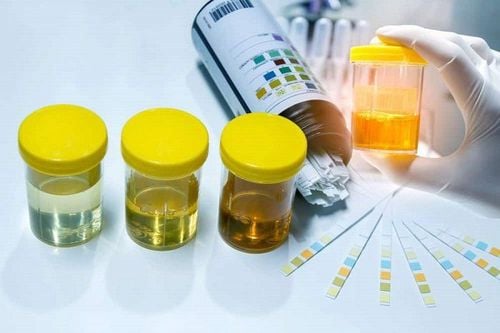
Xét nghiệm cặn Addis là phương pháp được sử dụng để chẩn đoán hội chứng thận hư.
3. Significance of Addis test for nephrotic syndrome
Addis residue test is the method used to diagnose nephrotic syndrome. The test results of this method have the following meanings:
Addis residue test index is normal:
Addis residue < 1000 red blood cells; WBC < 2000 cells/min; There are no red blood cells, urinary casts, white blood cells. Addis residue test index is abnormal:
Addis residue > 1000 red blood cells can be a sign of nephrotic syndrome, the number of red blood cells can increase more than 2500 - 3000 cells / 1 minute. When looking at fresh urine residue on the optical microscope, there are many red blood cells in the microsphere. In nephrotic syndrome, the white blood cell count is > 3000 cells, which indicates that the patient is suffering from inflammation. When the white blood cell count is > 200,000 cells, there is a high chance of kidney infection or cystitis. Observed under the microscope, we see dense leukocytes in the microsphere along with many degenerated white blood cells, this is called pyuria, chylous (nutrients absorbed from food through the intestines). The test case has a cylindrical structure as a result of damaged renal tubules.
4. How to conduct Addis sediment sampling
To collect a sample for Addis sediment analysis, you need to follow the steps below:
After waking up, you need to empty the urine during the night (best not to eat between 10pm the night before. ). Next, drink 300ml of cooled boiled water, record the hour you just drank the water, then do gentle activity. For the next 3 hours, all the urine you pass will be stored in a clean potty. At 9 o'clock you last urinated and then measure and record the entire volume of urine you have collected. Shake this amount of urine well and take out about 10ml to bring to the laboratory for analysis (must wrap carefully, avoid spilling urine sample). Urine samples after being transferred to the laboratory will be analyzed by technicians. In summary, the Addis residue test is important in the diagnosis of nephrotic syndrome. Therefore, if you suspect that there are signs of nephrotic syndrome, you can go to the Laboratory Department - Vinmec International General Hospital to be assigned to perform the necessary tests.
As one of the leading prestigious addresses in the country, the Laboratory of Laboratory - Vinmec International General Hospital is trusted by a large number of patients for medical examination and treatment. Thanks to the use of modern machines and equipment to test and analyze patient samples, it has provided accurate information, helping doctors to assess the overall health status of the person being tested, soon. detect disease and suggest timely treatment plan. In particular, with a space designed according to 5-star hotel standards, Vinmec guarantees to bring patients the most comfort, friendliness and peace of mind when visiting and receiving treatment at the hospital.
Please dial HOTLINE for more information or register for an appointment HERE. Download MyVinmec app to make appointments faster and to manage your bookings easily.




